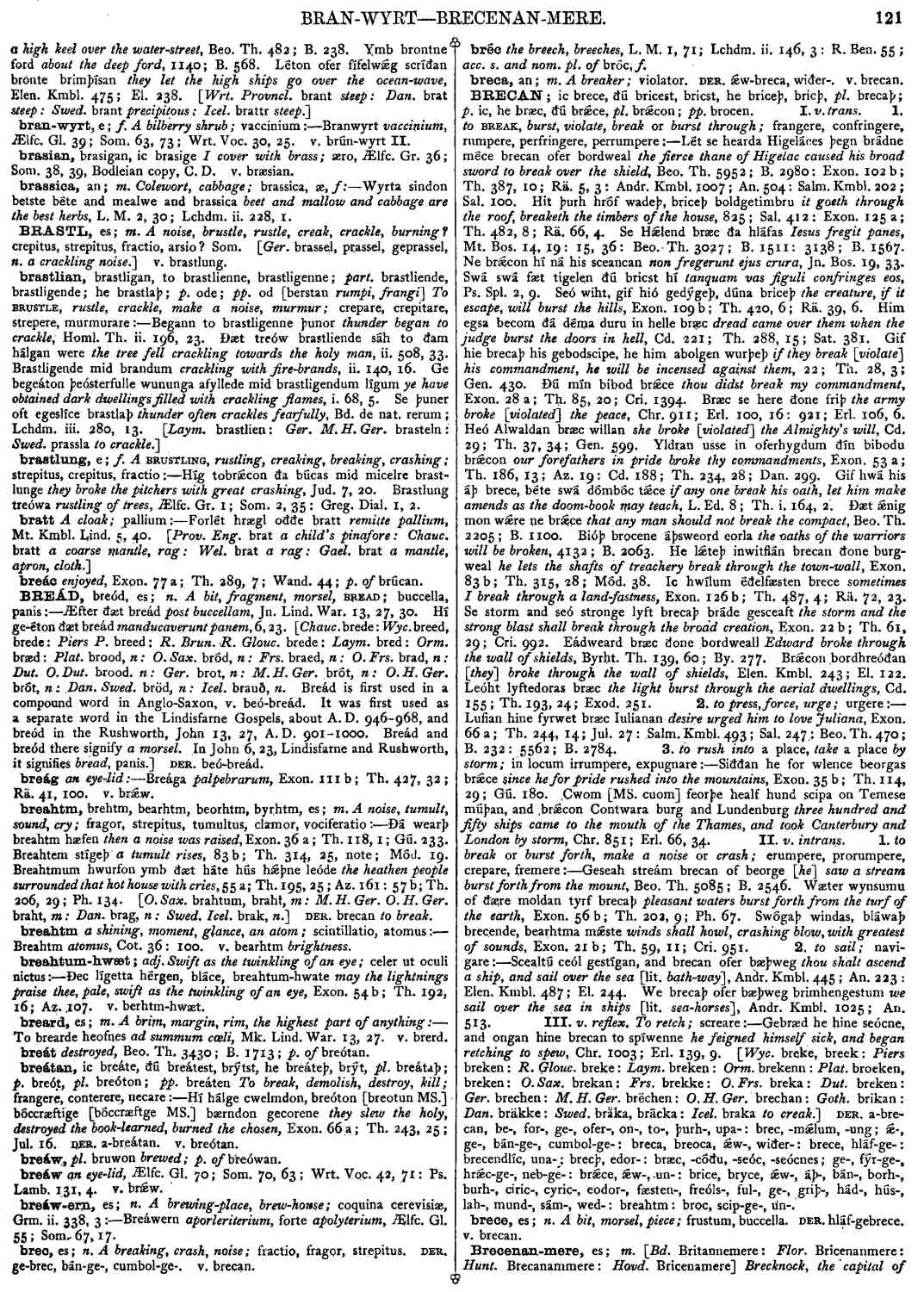BREÁD
- noun [ neuter ]
-
Æfter ðæt breád
post buccellam,
- Jn. Lind. War. 13, 27, 30.
-
Hí ge-éton ðæt breád
manducaverunt panem,
- 6, 23.
Bosworth, Joseph. “BREÁD.” In An Anglo-Saxon Dictionary Online, edited by Thomas Northcote Toller, Christ Sean, and Ondřej Tichy. Prague: Faculty of Arts, Charles University, 2014. https://bosworthtoller.com/4983.
Checked: 0